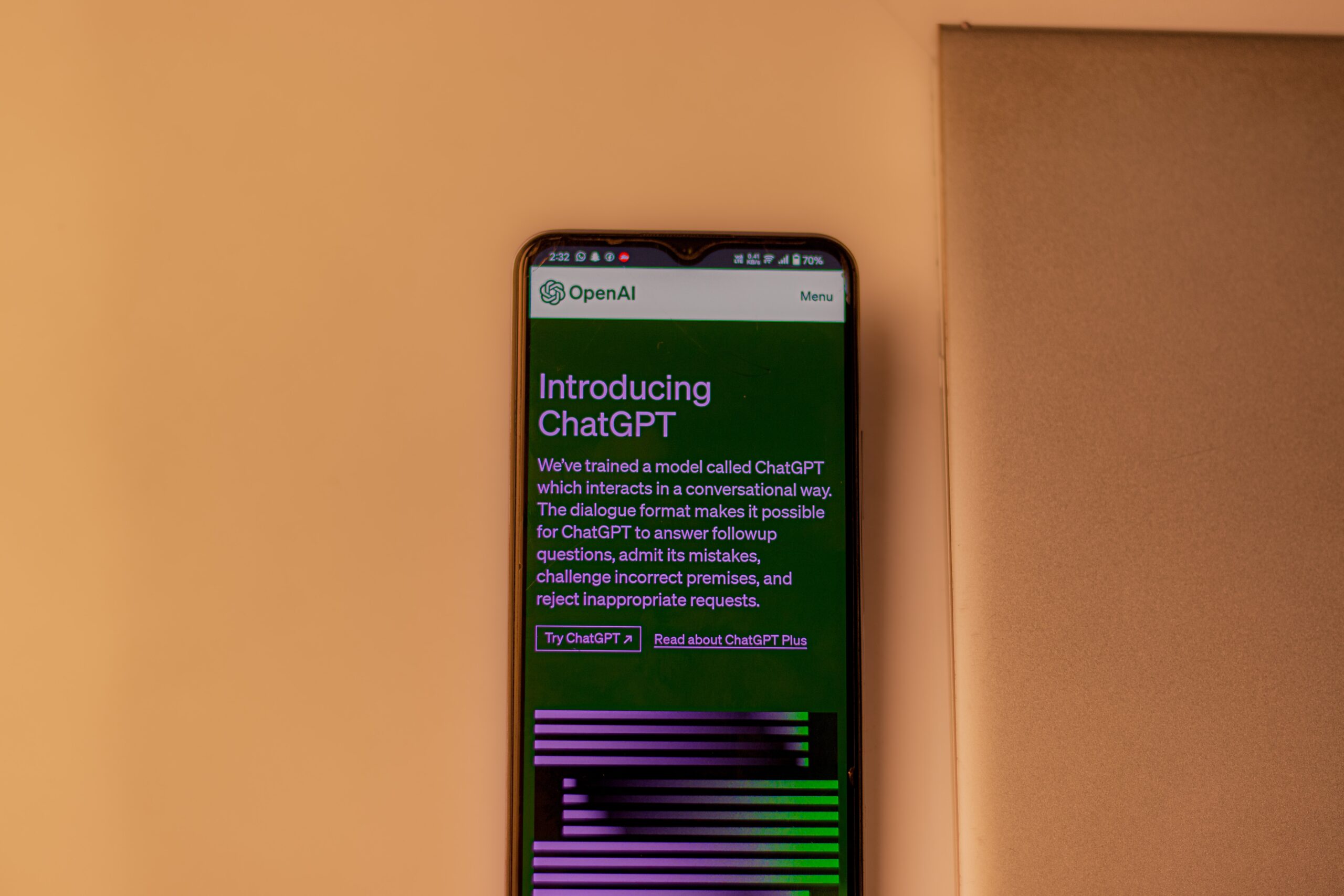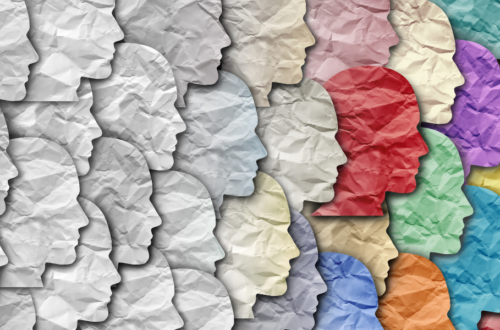
The Doctor, The AI, and You: Finding the Right Prescription
Reality, hype and possibilities in the use of AI in doctor-patient communication
Arunima Rajan
Artificial Intelligence (AI) has been finding a role in various industries, and healthcare appears to be among the prime beneficiaries. Recently, AI has started to make its way into healthcare communication, with the promise of enabling doctors and patients to indulge in superior conversations. This technological marvel, they say, has the power to redefine doctor-patient interactions, paving the way for enhanced patient experiences and superior health outcomes.
The healthcare landscape, particularly in India, is riddled with an assortment of challenges. These include a scarcity of healthcare professionals and inadequate infrastructure. The result is the unavailability of quality healthcare for millions. Amidst this chaos, AI emerges as a potential saviour, augmenting healthcare professionals’ abilities. By harnessing AI-driven communication tools, doctors may be better equipped to decipher their patients’ needs, communicate effectively, and deliver personalised care. Yet, the question remains – can AI truly replace the human touch in the delicate dance of doctor-patient communication, or are we setting ourselves up for disappointment?
As AI evolves, it’s anticipated to play a more prominent role in healthcare communication. This article delves into the surge in AI system adoption for communication, the sometimes conversational role AI plays in healthcare, and the hurdles and ethical dilemmas surrounding AI communication implementation in India.
Navigating the Complexities of Doctor-Patient Communication in India
Doctor-patient communication, a complex delicate process, is crucial for effective healthcare delivery. In India, however, this intricate process is riddled with language barriers, cultural disparities, and varying degrees of health literacy among patients. Add to this the overwhelming number of patients that Indian doctors must attend to, and you’re left with precious little time for meaningful exchanges.
This is precisely where AI-powered communication tools come in, according to many in the tech sector. Harnessing the power of data analysis and natural language processing (NLP), these tools might bridge the chasm between doctors and patients. Picture real-time translation services, auto-generated patient summaries, and even the prediction of patient preferences and concerns contribute to a richer dialogue between doctor and patient, fostering trust and understanding.
Moreover, AI can be a personalised health educator, crafting tailored patient education materials. By providing accurate and relevant information on health conditions and treatment options, patients are empowered to make informed decisions and engage actively in the healthcare process.
A recent article in the BMJ by researchers from the US and UK explores the potential of artificial intelligence (AI) in improving medical communications between healthcare providers and patients. The authors identify three key areas where AI could help: analysing words and phrases, turn-taking analysis, and assessing tone and style in interactions. By providing personalised assessments of communication skills, AI could help prevent misdiagnoses, encourage better adherence to treatment plans, and improve patient-provider relationships. While the technology shows promise, challenges remain in applying speech recognition to complex medical encounters. As AI advances, its effectiveness in healthcare and provider acceptance will change in ways we cannot fully anticipate yet.
A Novelty or a Necessity?
In recent years, AI has made its way into healthcare communication, with an increasing number of AI-powered tools, chatbots, and virtual health assistants being developed and deployed. They’re touted to improve doctor-patient engagement, treatment plan adherence, and health behaviours. But this begs the question, are these tools truly revolutionising the healthcare landscape, or is the hype overblown? Telemedicine, a field experiencing a surge in AI adoption, especially after the COVID-19 pandemic, is under scrutiny. AI-powered telemedicine platforms claim to ease doctors’ burdens by enabling remote diagnoses and treatments. However, is the efficiency of these platforms as remarkable as promised, or are they merely glorified virtual assistants providing round-the-clock support?
Undoubtedly, AI enhances healthcare administration efficiency, streamlining tasks like appointment scheduling, billing, and patient record management. But can AI genuinely help healthcare providers free up time and resources for patient care, or is this a pipe dream born of tech utopianism? As we witness the infiltration of AI into healthcare communication, it’s crucial to remain sceptical and question whether these AI-driven tools are indeed the panacea they’re promoted to be or if we’re merely succumbing to the allure of advanced technology.
What is the role of Conversational AI in Healthcare Communication?
Conversational AI refers to AI technologies that enable machines to understand, interpret, and respond to human language naturally and meaningfully. In healthcare communication, conversational AI can be used to develop AI-driven chatbots and virtual health assistants to engage with patients, answer their queries, and provide personalised support and guidance.
These AI-powered tools can help patients navigate the complex world of healthcare, from understanding their symptoms and diagnoses to managing their treatments and follow-up care. By providing patients with accurate and timely information, conversational AI can empower them to make better decisions about their health and improve their overall well-being. In addition to patient engagement, conversational AI can assist healthcare professionals in their day-to-day tasks, such as documentation and data analysis. For example, AI-driven medical scribes can automatically generate patient notes and summaries, reducing the administrative burden on doctors and allowing them to focus on patient care.
Streamlining Clinical Documentation: Nuance Communications Launches DAX Express with OpenAI’s GPT-4 Integration
The race among tech giants to incorporate AI, especially the behemoth language models, into their offerings is heating up. Microsoft’s recent acquisition, Nuance Communications, has rolled out Dragon Ambient eXperience (DAX) Express – a voice-activated medical scribe app that integrates with OpenAI’s GPT-4. It automates the tedious task of clinical documentation by listening in on physician-patient consultations and churning out draft clinical notes, ready for a quick review. Nuance’s Dragon Medical One speech recognition software forms the backbone of DAX Express. By building on the company’s existing Dragon Ambient eXperience solution, the technology is said to cut down the administrative burden weighing on doctors’ shoulders.
HIPAA and ChatGPT
Harvey Castro, a physician, healthcare consultant, and serial entrepreneur, wrote in a recent article in MedPage Today about the potential impact of AI technology, such as ChatGPT, on the healthcare industry. He noted that while AI can enhance care quality and accessibility, particularly in underserved communities, it must comply with HIPAA (Health Insurance Portability and Accountability Act) regulations to safeguard patient privacy and build trust. HIPAA is a US federal law that sets standards for protecting sensitive patient health information from being disclosed without the patient’s consent or knowledge. Castro emphasised the importance of preserving human interaction in healthcare and suggested that combining AI with human expertise can lead to a more patient-centred and efficient healthcare system.
AI: Exciting yet Challenging Frontier in Healthcare Communication
Studies show, effective healthcare relies heavily on communication, which can impact patient outcomes and doctor-patient relationships. Documenting medical communication is challenging and time-consuming for human-based coding and audit systems, making the application of AI in this field through machine learning attractive. Recent advancements in AI have enabled accurate textual transcription and analysis of non-verbal and paraverbal behaviours. AI can be used to identify various communication metrics, such as talk time, interruptions, pauses, language complexity, and nonverbal cues, and has shown moderate to good reliability, comparable with human coding. AI algorithms can also identify pre-specified communication characteristics and explore their associations with patient outcomes. While the application of AI in health-professional communication is an emerging area with much potential, further research is needed to explore its feasibility, reliability, acceptability, and effectiveness, as well as its ability to reflect the true complexity of health-professional-patient communication.
How large is the healthcare AI market in India?
The healthcare AI market in India is rapidly growing, driven by the increasing adoption of AI technologies in various aspects of healthcare, such as diagnostics, drug discovery, and patient care.
In 2018, India’s spending on AI increased by more than 100%, amounting to $665 million. It is anticipated that by 2025, the expenditure will rise to $11.78 billion and by 2035, AI will contribute $1 trillion to India’s economy.
According to a World Economic Forum report, NITI Aayog, a think-tank associated with the Indian government, is exploring AI’s potential in primary care for early detection of diabetes complications and verifying its use as a screening tool in eye care. They plan to integrate AI capabilities with portable screening devices, such as 3Nethra, to expand eye screening capacity in remote areas. Additionally, AI-based tools can enhance cancer research outcomes by using high-quality, de-identified images in the Comprehensive Archive of Imaging. Microsoft’s AI Network for Healthcare and Apollo Hospitals are working on a machine learning model to predict heart attack risk using clinical and lab data from over 400,000 patients. The AI solution can recognize new risk factors and offer heart risk scores to patients without the need for an in-depth health check-up to enable early disease detection.
Challenges and Ethical Considerations
As AI becomes integrated into healthcare communication, security and privacy of patient data must be prioritised to prevent data breaches and misuse of information. AI algorithms require large amounts of anonymized patient data to improve their accuracy, so healthcare providers must ensure that this data is securely stored and accessed only by authorised personnel. Ethical considerations arise from the use of AI in healthcare, such as privacy, bias, and accountability. Developers must ensure that their algorithms are unbiased, transparent, and prioritise equity in healthcare delivery. Healthcare providers must take responsibility for AI-driven decisions and be accountable for negative consequences. To ensure the ethical use of AI, transparency, responsibility, and accountability must be prioritised, and regulatory bodies should develop guidelines that prioritise patient privacy and fairness in healthcare delivery.
The future of healthcare communications belongs to digital technology and AI: Mr Vimal Narayanan
The adoption of AI in healthcare communication in India is still in its early stages, and several challenges must be addressed to ensure its successful implementation. One significant challenge is the high costs associated with developing and deploying AI technologies. Additionally, there is a significant skill gap in India’s healthcare workforce, particularly in AI development and deployment. To address this challenge, healthcare providers must invest in training and upskilling their workforce to ensure they have the necessary skills to work with AI technologies. Data governance and privacy concerns are also significant challenges to implementing AI communication in India. Healthcare providers must ensure that patient data is anonymised and secured to prevent data breaches and protect patient privacy. Also, healthcare providers must comply with strict data protection regulations to ensure patient data is used ethically and responsibly.
Are Indian doctors ready to accept AI?
While the adoption of AI in healthcare communication is still in its early stages in India, there is growing interest and acceptance among Indian doctors. Many doctors recognise the potential of AI to augment their capabilities and improve the quality of healthcare delivery. However, there is still significant scepticism and resistance to AI among some healthcare professionals, particularly around the perceived threat to their jobs and the ethical considerations involved in using AI in healthcare. To address these concerns, it is essential to provide healthcare professionals with training and education on AI technologies and their applications in healthcare. Additionally, healthcare providers must prioritise transparency and accountability in using AI, ensuring that healthcare professionals are aware of the data and algorithms used to generate AI-driven recommendations.
Can healthcare show the way forward for scaling AI?
The healthcare industry has the potential to show the way forward for scaling AI, particularly in India. As healthcare providers increasingly adopt AI technologies, they can provide valuable insights and lessons learned about the challenges and opportunities of implementing AI at scale.
Additionally, the healthcare industry’s focus on patient privacy and data protection can serve as a model for other industries looking to adopt AI technologies. By prioritising transparency, responsibility, and accountability and ensuring that patient privacy and data protection are prioritised, healthcare providers can demonstrate how AI can be used ethically and responsibly.
As AI technologies continue to evolve and become more sophisticated, the healthcare industry’s experiences with AI can inform the development and deployment of AI in other industries. By prioritising responsible and ethical AI development and deployment, we can ensure that AI technologies are used to improve society’s well-being.




